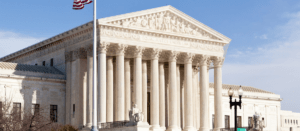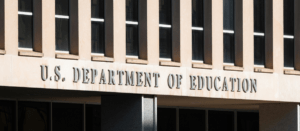When it comes to national sovereignty, the focus is, rightfully, on the nation’s southern border, which had been woefully unprotected in the years before President Donald Trump returned to the White House. But just as critical is the foreign influence undermining America’s universities, particularly that of China.
For years, China has embedded itself on college campuses through its Confucius Institutes (CI). CIs are joint ventures between the host university and the Hanban, an agency within China’s education ministry. Though touted as academic centers that give students the chance to interact with Chinese professors, learn the language, and immerse themselves in Chinese culture, they are little more than propaganda arms of the Chinese Communist Party (CCP).
The CIs are funded and staffed almost exclusively by the Chinese government. As employees of the CCP, these teachers do not discuss the darker side of China’s history, including its abysmal record on human rights. They also present Taiwan and Tibet as undisputed Chinese territories. While advocates argue that these classes are an important cross-cultural experience for students, the CCP itself has stated the true purpose of CIs. In 2009, then-CCP Politburo Committee member Li Changchun called CIs “an important part of China’s overseas propaganda apparatus.” The result is a generation of students who lack the moral clarity needed to make policy decisions regarding China.
Further, because these institutes cover all the expenses for their classes and offer generous scholarships to students to study abroad in Beijing, colleges are pressured into censorship, less they lose their lucrative partnership with the CIs, a criticism shared by those on both sides of the political spectrum.
In 2018, left-leaning publication The New Republic published a story highlighting a litany of examples of colleges self-censoring. One highly publicized example was when the University of North Carolina cancelled a visit from the Dalai Lama, the religious leader of Tibet, citing that the visit could harm the school’s relationship with China. But there are also numerous stories of professors and graduate students avoiding any topics that would upset the CPP government.
At the height of their influence, these institutes operated on nearly 100 American college campuses. After a series of investigations and public backlash in recent years, the number has dwindled to 10, officially. One of those is on the campus of Stanford University. Yet many of those formerly Confucius Institutes have reopened under a new name to avoid scrutiny, ensuring that the CCP still has an insidious amount of influence within America’s higher education network.
That’s why Congress is pushing through a bill to cut off federal funding to any colleges who still have functioning CIs on their campuses or have any other ties to the CCP. The DHS Restrictions on Confucious Institutes and Chinese Institutes of Concern Act, led by Sen. Rick Scott (R-Florida) and Rep. August Pfluger (R-Texas 11th), would prohibit Department of Homeland Security (DHS) grants from being awarded to any universities that have any of these kinds of arrangements with China.
The bill has broad bipartisan support. It passed through the House earlier this month with a vote count of 266-153, with 56 Democrats joining Republicans in voting for it. That bodes well for its future in the Senate.
The issue at hand is not that universities have a relationship with foreign nations – it is good, and arguably important, for students to be exposed to other cultures and ideas in order to be better informed about the world in which they live. But China is openly hostile to the United States and has proven that it does not operate in good faith with any American entities. Chinese money and influence always come with strings attached. Our universities should be free to educate without Chinese interference and free to innovate and research without those ideas being smuggled back to the CCP. Concerned Women for America Legislative Action Committee (CWALAC) applauds this effort to protect America’s national sovereignty and our next generation of policymakers.






